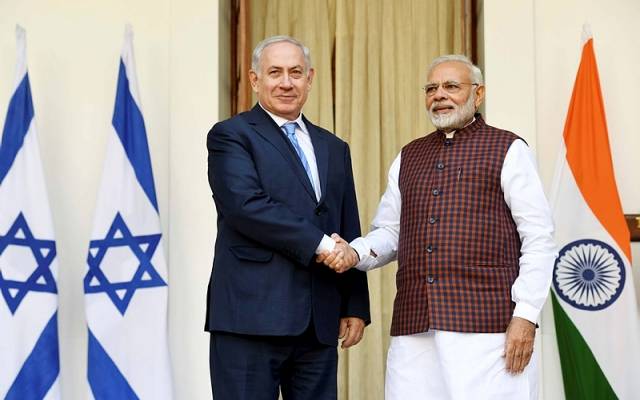Israeli companies will supply India with medical imaging technology, industrial waste filtering systems and facilities to combat fruit flies.
By: United with Israel Staff
Six Israeli startups with innovative technologies in the fields of healthcare, agriculture and water management have made it to the final stage of the Israel Innovation Authority’s “Israel-India Bridge to Innovation” program, launched over the past year during bilateral meetings between the prime ministers of both countries.
The 18 companies that were initially selected to participate in this program presented their technologies to CEOs and investors from Israel and India in a Demo Day held last week at the Urban Place complex in Tel Aviv.
The six companies chosen to continue to the final stage will pilot their solutions in India.
Among the notable participants taking part at the Demo Day were representatives of India’s Invest India agency. The keynote speaker was Rohtash Mal, Chairman of EM3 Agriservices, renowned in India as the “Uber of farmers.” The company rents out equipment to farmers based on time or acres farmed, doing away with the need for farmers to purchase expensive equipment and giving them access to advanced technology at low costs.
The six winning companies selected to continue to the pilot stage of the program will provide an encompassing solution package to various challenges facing India.
In agriculture, Amaizz, a company that has developed a portable drying device enabling dry storage of agricultural produce, is of immense significance in the Indian market, where it is difficult to ship fresh produce.
Biofeed is a company that has developed a device to combat fruit flies, a pest destructive to India’s yield of mango and other fruit. India is one of the world’s key mango exporters.
In healthcare, Zebra Medical, a company developing medical imaging technologies, and MobileODT, which has developed devices to diagnose cervical cancer, will provide the Indian health system with their inventions.
In water management, Aquallence, a company that has developed a device to treat water with Ozone, and AMS Technologies, which has developed a system to filter industrial water, will help India combat water pollution.
Peak in Israeli-Indian Relations
The 18 companies initially selected were reviewed by a panel of judges from Israel and India who looked at over 150 applications. The companies took part in a six-month process of training and workshops, including information regarding Indian markets, together with professional visits, networking events, mentoring and meetings with senior executives and officials, investors, senior management, experts and entrepreneurs in the fields of water management, agriculture and healthcare.
Eli Cohen, Israeli Minister of Economy and Industry, said that “following the government decision a year ago to invest 240 million shekels by the year 2020 to promote relations with India in the fields of innovation and technology, the ‘Israel-India Bridge to Innovation’ program is a golden opportunity for Israeli companies in the fields of healthcare, water management and agritech to achieve prominence and to enter such a significant and developing global market – India.”
Dr. Ami Appelbaum, chief scientist at the Israeli Ministry of Economy and Industry and chairman of the Israel Innovation Authority, said that “the Israel-India Bridge to Innovation is a springboard for cooperation between Israeli innovators and Indian corporations. The collaboration between India, a massive economy with the largest growth rate in the world, and Israel, the “Startup Nation,” to develop technological solutions to various challenges, is synergistic and unique. There is a real mutual desire, backed by substantial investment, to pilot these cooperative ventures in India in order to solve pressing global challenges especifically in India but all over the world as well.”
Avi Luvton, executive director of the Asia Pacific Desk at the Israel Innovation Authority, emphasized that the “Bridge to Innovation” program comes at a peak in Israeli-Indian relations that began more than a year ago and which has been strengthened by bilateral visits by both prime ministers, reflecting an era in which many new opportunities are opening up within the Indian economy.
